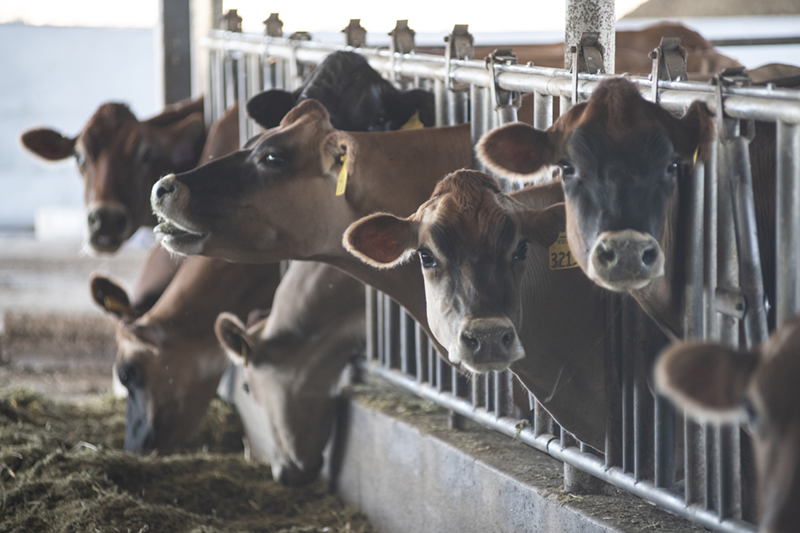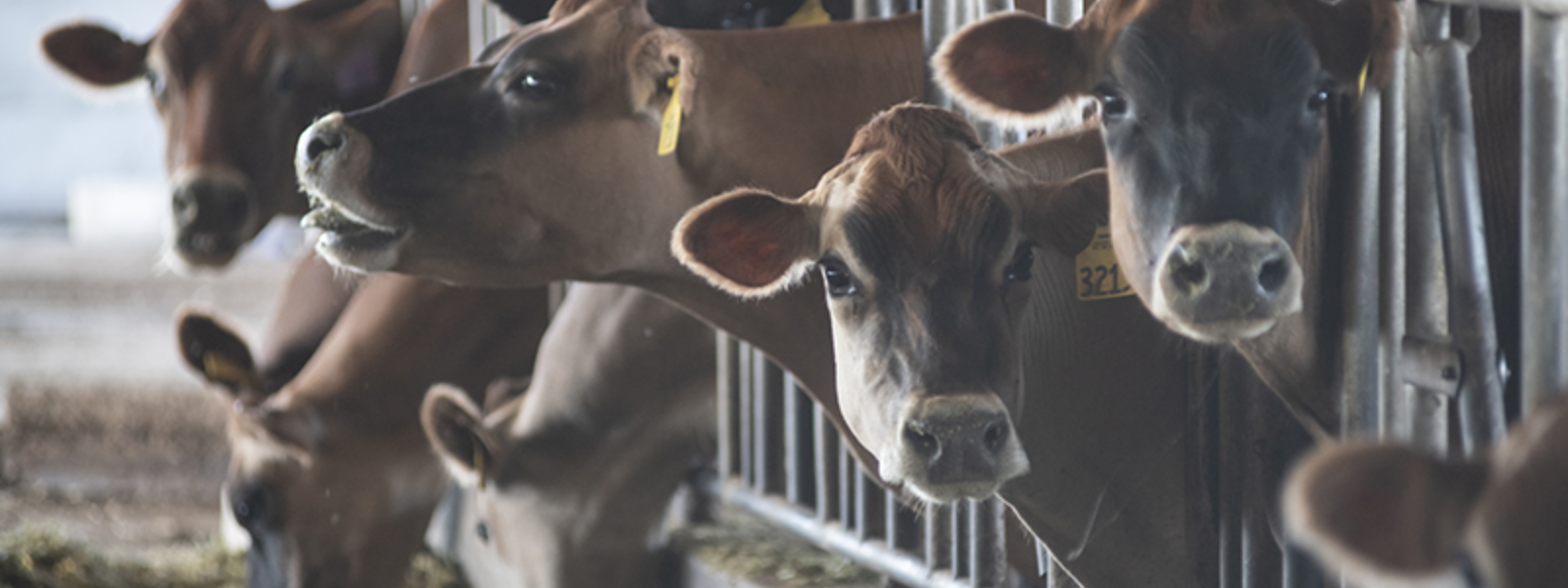Certifiers among those affected by new organic rules


By Ching Lee
New federal rules meant to prevent organic fraud have been praised by organic farmers for helping to protect the integrity of the national organic label. But the rules have also brought unintended consequences as smaller operations struggle to keep up with the new requirements.
Those struggling include government agencies that inspect and certify farms to ensure they comply with standards of the National Organic Program.
Marin Organic Certified Agriculture, or MOCA, which is run by the Marin County Department of Agriculture, has notified its clients that it will no longer provide organic certification services for livestock handling and processing effective Nov. 30. The county’s agricultural commissioner, Joe Deviney, cited increased regulatory burdens due to the recent rule changes, which have strained the department’s staff and resources.
The irony has not been lost on Deviney, who lamented in a virtual meeting with farmers last week that “government is being pushed out by increased government regulations.”
Marin County will continue to provide organic certification services for crops. But the region’s organic dairy farmers, ranchers, creameries and livestock handlers will need to switch to any number of private certifiers.
Deviney said the department has “tried to limp along” during the rollout of the federal Origin of Livestock rule in 2022 and the Strengthening of Organic Enforcement rule earlier this year. But with the upcoming implementation of the Livestock and Poultry Standards—set to take effect in January—“we’re at a point now where we’re absolutely not able to manage the program,” he told farmers.
He noted having lost eight staff members, including four experienced people, in recent years. The lack of staffing forced the department to use independent contractors, who performed almost half of MOCA’s organic inspections last year. Relying on contractors is not a solution, Deviney said, adding the pool of qualified inspectors remains small, and training to become one is rigorous, with the U.S. Department of Agriculture requiring 2,000 hours of experience prior to performing a solo inspection.
MOCA’s high workload has impacted the department’s other mandated programs, Deviney said, including work related to pesticide regulations, farmers markets and enforcement of weights and measures.
Marin County is not alone. Deviney said other government and smaller certifiers also have ended their certification programs due to the new organic requirements, which were meant to “stop cheaters.” But the increased regulations have also been “overburdening…to the detriment of the industry,” he said. He noted states such as New Hampshire, Rhode Island, New Jersey and New Mexico have in recent years also surrendered their USDA accreditation as organic certifiers for similar reasons.
Farmers also have felt the brunt of the new rule, said Lia Sieler, executive director of Western Organic Dairy Producers Alliance in Chico. Even though farmers and organic trade groups had encouraged USDA to strengthen organic enforcement, she said, they did not initially understand “the vast amount of paperwork that would go along with it”—until now.
“It seems as if it’s going above and beyond,” she said of the new rule. “Our farmers are looking at it and they’re overwhelmed—and rightfully so. It’s a lot to handle.”
Sieler said she’s particularly worried about older-generation farmers having to navigate the “astronomical amount of recordkeeping and paperwork that’s involved now” on top of needing to find a new certifier. “They’re looking at it and saying, ‘Is it even worth me keeping my farm going?’”
Albert Straus, founder of Straus Family Creamery in Petaluma, agreed the new regulations have placed “an undue burden” on smaller-scale farmers—a concern he voiced last year at the National Organic Standards Board meeting. In talking to Jennifer Tucker, deputy administrator of the National Organic Program, he said she made clear that the Strengthening Organic Enforcement rule is meant to target imports, not go after small and medium-sized farmers.
Of the 13 dairies that supply milk to his creamery, at least three are certified by MOCA, including his Marin County dairy. The creamery is certified by Santa Cruz-based California Certified Organic Farmer, or CCOF. While there are other certifiers, Straus said, the bigger issue is the impact on local farms and the local food system.
“When you lose local certifiers, you lose your people,” he said. “I’m concerned about losing local support, our county support for our organic farmers and losing our critical mass of infrastructure.”
USDA, through a spokesperson, said “the organic community, including certifiers, broadly supported” the new rules, with “more than 40,000 overwhelmingly positive public comments” for the Organic Livestock and Poultry Standards proposed rule.
“As the organic industry has grown, its complexity has increased, and the need for additional protections has emerged,” the department said in an email. “We are monitoring certifier implementation of these rules to ensure they are being implemented in a way that increases needed consistency between certifiers while minimizing impacts on small farms wherever possible.”
Marin County rancher Loren Poncia has used MOCA since 2008, when there weren’t as many certifiers. He said some of the problems MOCA faces are also indicative of how hard it is to do business in California. To find qualified inspectors and to pay them enough so they could afford to live here “is pretty darn hard,” he said. The new regulations now take inspectors and producers more time.
“Time is money,” he said, “and the prices of all the products go up where people just get tired of it.” He said he knows of at least two producers who have quit organic in recent years, as the lower premiums for organic products are no longer worth the cost, time and work of retaining their organic certifications.
Jennifer Beretta, whose family operates dairies in Marin and Sonoma counties, currently uses three different certifiers: MOCA, CCOF and Organic Certifiers Inc. in Carpinteria. She described their costs as “very comparable,” though she said she enjoys the “local presence” of MOCA, “knowing that you can call the office, and you get the same people.”
With the new enforcement rules, she said “some days I wonder why we are organic,” as the paperwork involved is “absolutely ridiculous.” Though the industry wanted stronger rules, she said, “USDA didn’t take into account the trickle-down effect” on smaller certifiers such as MOCA and smaller farms.
“Unfortunately, we asked for it, but we didn’t comment on how we wanted it,” Beretta said.
Sieler of Western Organic Dairy Producers Alliance encouraged producers to make their voices heard through the National Organic Standards Board, whose next meeting is in October, with written comments due Sept. 30. She said the alliance is working on a survey about how dairy farmers have been impacted by the Strengthening Organic Enforcement rule and plans to use it “as a conversation piece in talking with (the National Organic Program) in the future.”
Beretta said her main concern is whether other certifiers will have enough inspectors and capacity to take MOCA’s clients. Deviney said MOCA certifies about 30 livestock and dairy producers.
April Vasquez, chief certification officer and chief operating officer of CCOF, said the nonprofit “can absolutely support all the livestock operations that MOCA needs to let go,” adding that CCOF will waive transitioning producers’ new application fees and “do everything we can to support a seamless transition.”
Because the new rules require importers of organic goods to become certified, CCOF said it has seen “record numbers of new handlers, processors and importers applying for certification,” with the process for new applicants taking six months or more. “I do not see this impacting our livestock applicants,” Vasquez said.
MOCA’s livestock handling and processing clients have until Dec. 30 to either surrender their organic certification or maintain it by providing proof that they have applied for a certification with a new certifier.
(Ching Lee is an assistant editor of Ag Alert. She may be contacted at clee@cfbf.com.)




